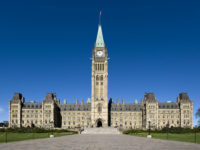Federal Government Makes Big Promises as it Announces Review of Laws Related to Canada’s Indigenous Peoples
Recently, the Government of Canada announced it had assembled a working group of ministers to review all federal laws and policies related to Canada’s Indigenous peoples.
Ministers involved include Indigenous Affairs Minister Carolyn Bennett, Fisheries Minister Dominic LeBlanc, Justice Minister Jody Wilson-Raybould, Health Minister Jane Philpott, Families Minister Jean-Yves Duclos and Natural Resources Minister Jim Carr. According to the government, this working group is guided by three objectives: (1) “[to] help ensure the Crown is meeting its constitutional obligations with respect to Aboriginal and treaty rights,” (2) [to] help Canada comply with the United Nations Declaration on the Rights of Indigenous Peoples (UNDRIP), and (3) fulfil the promise of implementing the Truth and Reconciliation Commission’s calls to action.
The proposed scope of this federal review is staggering. Laws to be reviewed include all Acts administered by Indigenous and Northern Affairs Canada (INAC); INAC has sole responsibility for 74 federal statutes and shares responsibility for 18 others (a full list is available here).
The third objective of the federal working group’s review involves ensuring full implementation of the 94 “Calls to Action” made by the Truth and Reconciliation Commission (TRC). The TRC was formed in 2008 pursuant to the terms of the Indian Residential Schools Settlement Agreement. The Goals of the TRC included production and submission “to the Parties of the Agreement, a report including recommendations to the Government of Canada concerning the [Indian Residential School, or IRS] system and experience including: the history, purpose, operation and supervision of the IRS system, the effect and consequences of IRS (including systemic harms, intergenerational consequences and the impact on human dignity) and the ongoing legacy of the residential schools.” The TRC released its final “Calls to Action” in a report made public in 2015.
One of the key proposals is the TRC’s call for the federal government to adopt a policy of transparency by publishing its internal legal analysis developed by the Department of Justice in relation to cases that engage s. 35, or the Aboriginal Rights provision of Canada’s Constitution Act, 1982. This provision guarantees constitutional protection to all existing Aboriginal and Treaty rights by explicitly recognizing and affirming them within the context of Canada’s constitutional order.
The TRC’s recommendations also include a call to all levels of government in Canada to “fully adopt and implement the United Nations Declaration on the Rights of Indigenous Peoples as the framework for reconciliation” [Emphasis added]. The TRC further called upon the federal government to “develop a national action plan, strategies, and other concrete measures to achieve the goals of the United Nations Declaration on the Rights of Indigenous Peoples.”
The United Nations Declaration on the Rights of Indigenous Peoples is a declaration by UN member states on the rights to which Indigenous people everywhere are entitled. Although this declaration is not legally binding, it is widely considered to be an authoritative restatement of the current international legal norms and the direction toward domestic entrenchment of those norms into law. The declaration was adopted by the UN General Assembly in 2007. However, Canada did not endorse the declaration until 2010, and as of 2014 remains the only UN Member that refuses to adopt the “outcome document” affirming its commitment to the declaration. During the 2015 federal election, Justin Trudeau promised a new relationship between Canada and its Indigenous peoples, based on a nation-to-nation relationship built on trust, mutual respect and understanding. This promise included a specific commitment to adopting and implementing the UNDRIP in accordance with Canada’s Constitution, should the Liberal Party form a government. Shortly after the election, however, Justice Minister Jody Wilson-Raybould dialed back this commitment in comments made to the Assembly of First Nations and at a gathering of British Columbia cabinet ministers.
The creation of this working group represents a positive step towards reconciliation with Canada’s Indigenous peoples. Its goals of ensuring the Crown is meeting its constitutional obligations to Indigenous peoples, implementing the UNDRIP and fulfilling the TRC’s calls to action could make a huge impact on the relationship between the Government of Canada and Indigenous nations. However, these are incredibly ambitious goals and the review must be completed on a massive scale in order to create a positive and meaningful change in how Canada deals with and relates to Indigenous peoples. Canada’s Indigenous peoples, their allies, and all voters must continue to hold the government accountable to their promises and monitor the progress made in this review and other important files so that the government does not fall short of their promises.






